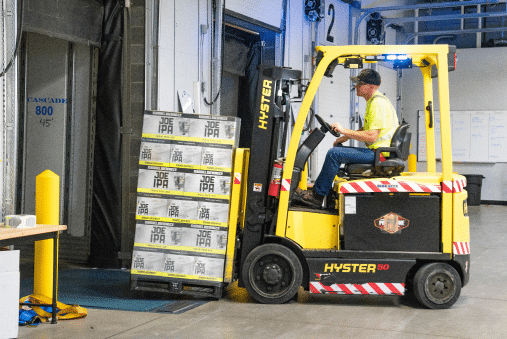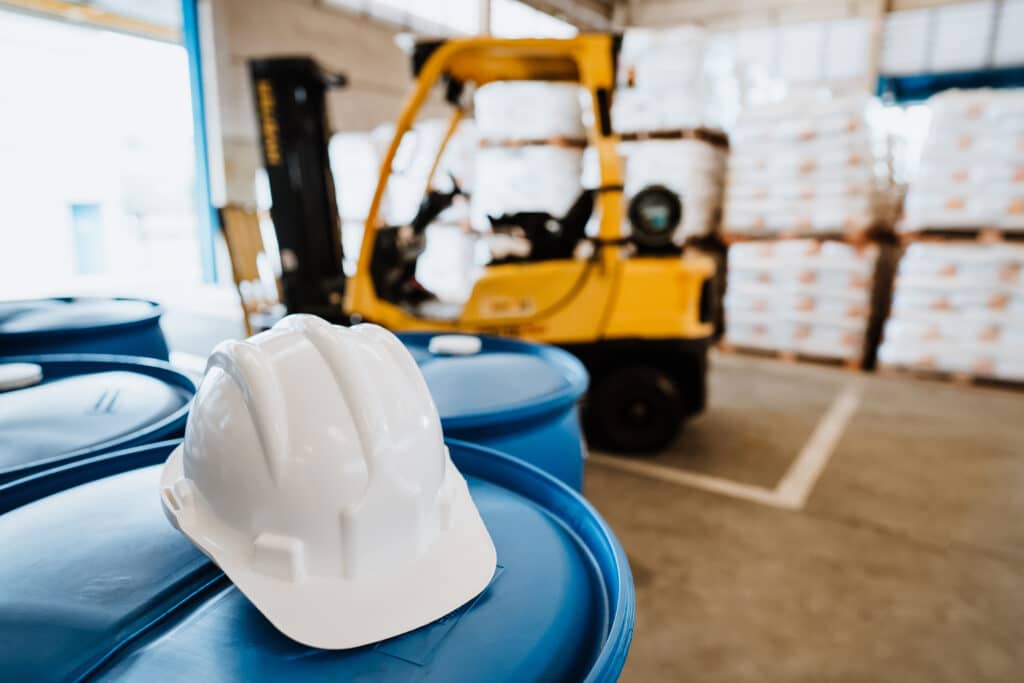
What Are The OSHA Requirements For Forklifts?
The Occupational Safety and Health Administration (OSHA) sets comprehensive standards for the safe operation of forklifts to ensure workplace safety and prevent accidents. These regulations cover various aspects of forklift use, including operator training, equipment maintenance, and operational protocols. Here is an overview of the key OSHA requirements for forklifts.
Operator Training and Certification
With forklift operators being essential warehouse jobs, these operators must complete formal instruction via lectures, videos, or written materials as required by OSHA. They must also complete practical, hands-on training to gain real-world experience under the guidance of a certified trainer. Before receiving certification, operators must undergo an assessment that measures their performance and forklift handling skills. Employers must provide proof that operators have received OSHA-compliant training and evaluations. Operators must reevaluate the following three years of certification validity. If an operator is involved in an accident, seen operating a forklift dangerously, transferred to a different kind of forklift, or if circumstances at work change, they must get refresher training.
Equipment Maintenance and Inspection
Forklifts must be inspected daily or before each shift to ensure they are in good working condition, with a focus on critical components such as brakes, steering, controls, tires, and warning devices. Any defects found during inspections must be reported and repaired before the forklift is used. Maintenance and repairs should be conducted by qualified personnel to ensure the forklift operates safely.
Safe Operation Practices
To preserve stability and avoid tipping, operators must not carry loads greater than the forklift’s rated capacity and must make sure that loads are distributed properly. Loads must be balanced and fastened to prevent movement while being transported. Operators should maintain good visibility and respect speed limits, particularly in pedestrian or congested areas. If a cargo blocks their view, they should shift into reverse. Operators must also pay attention to pedestrians and, if needed, warn them with horns or other warning devices.

Workplace Safety Measures
To prevent collisions with pedestrians and other vehicles, forklifts should only be used in approved areas. It is also important to make sure that work areas are clear of obstacles and have enough lighting for safe operation. To avoid tipping, more attention must be used when using forklifts on ramps or inclines. Environmental factors that could impair forklift stability, such as damp or slick surfaces, must also be considered by operators.
Specific Forklift Types and Attachments
Additional training is required for operators of various attachments and forklift types, including order pickers and rough terrain forklifts. Operators need to be trained in the unique handling and operational differences of only authorized attachments.
Recordkeeping and Compliance
To guarantee that all forklift operators are appropriately qualified, employers must keep records of operator certification and training. In addition, daily inspection logs have to be maintained to record forklift maintenance and condition. Employers must do routine audits to guarantee compliance with OSHA regulations and fix any found shortcomings. It’s also critical to keep up with any modifications to OSHA requirements so that operating procedures and training can be updated appropriately.
Conclusion
Maintaining a safe workplace and averting accidents requires forklift compliance with OSHA regulations. Employers may reduce the dangers involved with forklift operations and create a safer workplace for their employees by making sure that workers receive the necessary training, performing routine maintenance and inspections, and following safe operating procedures.
Next Steps
At NCW, our recruiters are dedicated to making personal connections with every job seeker. We don’t want to just help you find your next warehouse job, we want to match you with a company and role that will accelerate your career to wherever you want to go. We’ll handle all the boring admin stuff—resume prep, interview scheduling, contract negotiations—so you can focus on what you do best. Plus, NCW offers ongoing support throughout your role to help you keep climbing the career ladder.
Ready to discover your success in the field?
Connect with a recruiter and find work in warehousing today!
